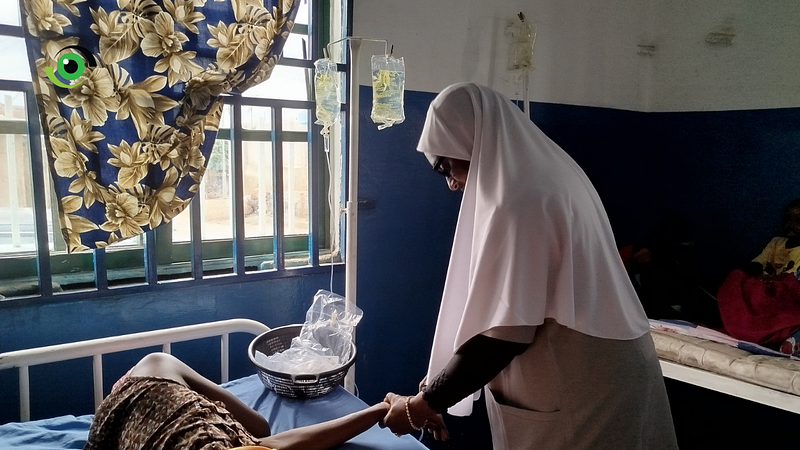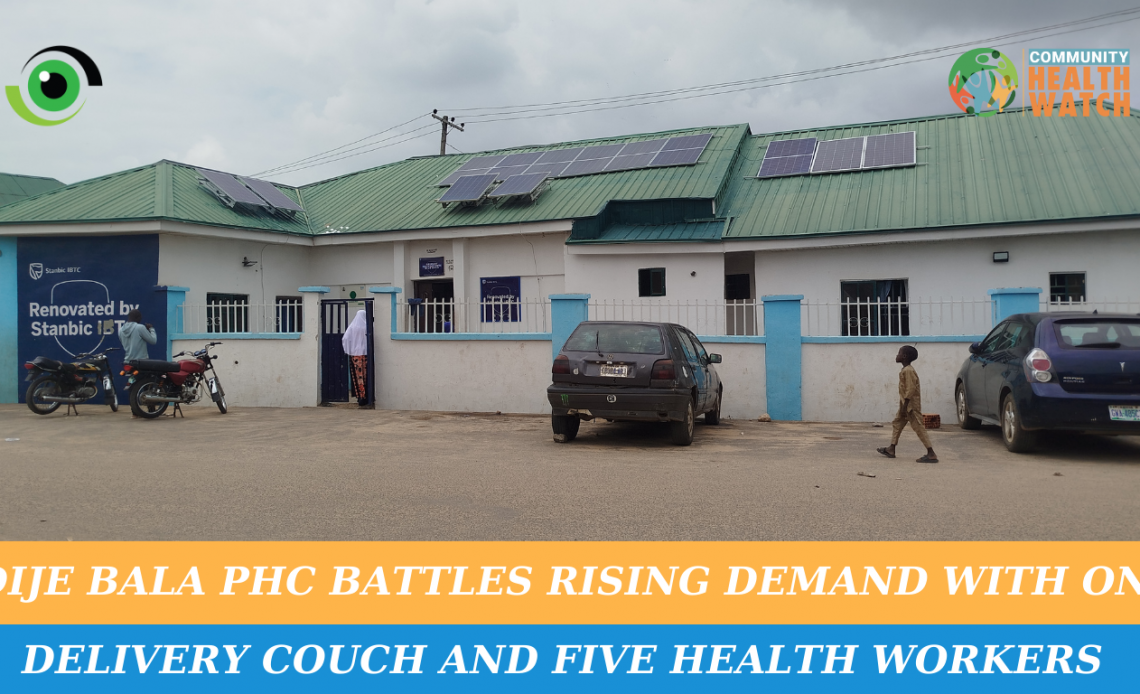Every day, expectant mothers in Suleja face a troubling reality at Dije Bala Primary Healthcare (PHC) – too many patients, only five staff, and one delivery couch. For many of them, childbirth here means sharing space in crowded wards, which is not ideal.
“One delivery couch is not enough,” Hauwa Muhammad, the Officer-in-Charge, explained. “Most times we conduct deliveries in the female ward, knowing fully well it’s unhygienic, but we cannot send a woman in labour home because the delivery room is occupied.“

Image credit: Nigeria Health Watch
Dije Bala PHC is a Level 1 facility located in Suleja, Niger State. It serves more than six surrounding communities, including Dawaki, Hashimi A, Wambai, Anguwan Gayan, and the Emirate Palace. Despite benefiting from solar-powered electricity and a borehole installation through corporate support from Stanbic IBTC Bank in 2024, gaps still exist.
Community leader, Mallam Adamu, recalled an unsettling incident. “I was at the clinic around 1 a.m. a few days ago, and the only personnel available were volunteers. With just five permanent staff [employed in the facility], emergencies are difficult to manage.”
The 7-bed facility attends to an average of 50 patients daily and records not less than seven deliveries every day. Though a Basic Health Care Provision Fund (BHCPF) focal facility supported by Niger State Contributory Healthcare Agency (NICARE), the Emirate Council, and philanthropists, its size and resources fall short of the growing health demands.
Healthcare providers highlight that overstretching staff capacity leads to compromised maternal and childcare, continuous demand for antenatal and immunisation services without adequate staff increases burnout and delays service delivery.

Mallam Adamu further spoke about the affordability challenges: “Many people can’t afford ₦11,000 to ₦15,000 to treat something as simple as a fever.”
Despite being a BHCPF-supported facility, Dije Bala PHC struggles with high patient volumes, inadequate bed space, and a critical shortage of staff. This creates disparities in access, with pregnant women and children most affected. Without urgent intervention, the health-seeking behaviour of the community risks decline.

These challenges echo Nigeria’s Health Sector Renewal Plan (2023–2027), which prioritises efficient, equitable, and quality healthcare. Expanding Dije Bala PHC into a Level 2 facility, recruiting staff, and supplying essential drugs would align with this vision and improve maternal and child outcomes.
The community and its environs are calling on concerned stakeholders to:
- Recruit more health professionals to manage the patient load.
- Expand the facility to a level 2 PHC and add more delivery beds.
- Provide affordable drugs and medical supplies.
“Healthy mothers mean healthy communities,” Hauwa Muhammad said. “With more hands and space, we can give every woman and child the care they deserve.”




2 Comments